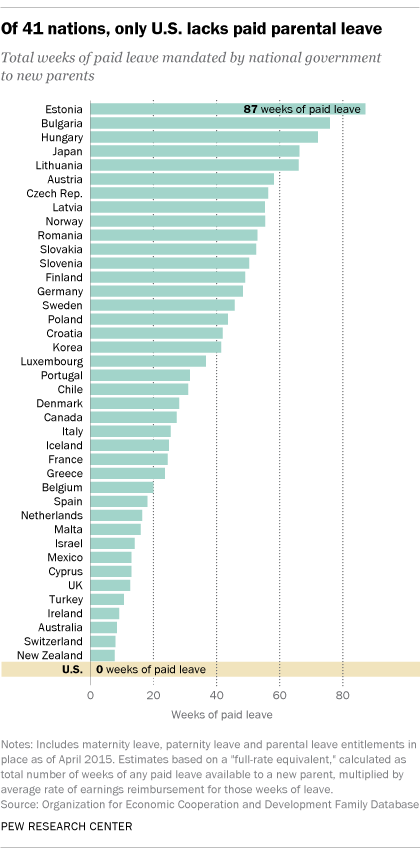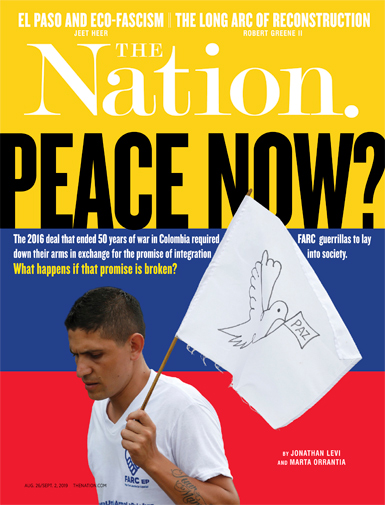We’re seriously behind, both on the pile of periodicals that we have to read and on the ones that we’ve read that we haven’t covered. Letting them age a bit this way puts the coverage in perspective a bit, and helps justify our procrastination.
News You Can Lose, by John Nichols: I have yet to watch any of the Democratic Presidential debates. I gave up my binge-drinking, live Tweeting, event watching after Trump was elected president. Douglass Rushkoff has noted how the debate as television spectacle gave us our current, reality show president, and I am in no mood to participate in the current round. That’s not to say that I haven’t post-watched some of the more ‘gotcha’ moments of the current crop: Biden’s numerous flubs, Julian Castro’s miscalculated attack on Biden, and of course, Elizabeth Warren’s onstage murder of one of the other also-rans.
Nichols column follows the Democratic debate in Detroit, hosted by Fox News. There was a union solidarity event a few hours before the debate at a General Motors transmission plant that was scheduled to be closed the day after the debate. Nichols notes that Dems would have been smart to have hosted the debate at the union hall, or at a church across the street from the actual debate’s location, where Detroit’s Democratic congressional delegation were attending in solidarity with families facing deportation. Either of these would have been smart choices to help focus the debates on substantive policy issues.
But of course, that isn’t the point. Spectacle is. Nichols’s point is that progressives need to make more of an effort to wrest control back of these debates back from the party and the networks and points to the People’s Presidential Forum as an example of this. The Forum, which was to be hosted in October by New England group Rights and Democracy, was cancelled because “not enough candidates could make this date work”.
The American Workplace, by Bryce Covert: Workplace discrimination against pregnant women is rampant in America, especially against working-class women. My wife was able to save up weeks of leave for both of our two children, but for most American women, finding or keeping a job while pregnant can be difficult, and employers use a variety of measures to screen out or dismiss these women. Pay discrimination, or more specifically, the gender-based wage gap, and the Equal Rights Amendment are important political issues today, and Covert profiles the challenges of several women whose lives have been affected by this issue and are fighting back.
Without repeating the details of these cases, I should note that America is one of the only industrialized countries that does not provide for paid maternal care for new mothers. And this fact has many secondary effects on the well-being of the child, including potential educational and economic ones. The profit-driven war on expectant mothers is a roadblock to economic mobility. We should grant American mothers the same privileges as the rest of the developed world, and allow them the time to bond with their newborns and not force them to either give up this time with their newborns, or give up on their careers.

Vigilant Struggle, by Robert Greene II: Review of Stony the Road, by Henry Louis Gates. The new Watchmen HBO series premieres with scenes from what can only be described as a race riot: Tulsa, Oklahoma, 1921. A black couple with a young boy tries to escape violence in the city as white citizens indiscriminately shoot unarmed blacks while buildings burn around them. Later, explosive devices are dropped from airplanes onto a garage where others had been hiding out. The scene was so outlandish that I thought it was some sort of alternate history being built around the show’s background. It wasn’t until later that I discovered that the racially motivated destruction depicted in the show was based on actual events.
My own ignorance of the Tulsa race riot almost a hundred years ago is further magnified by the history of Reconstruction following the Civil War. Henry Louis Gates has produced a new documentary series for PBS titled Reconstruction, and his book Stony The Road is a companion to this series. According to Greene, Gates has attempted to expand the period defined by Reconstruction to encompass the war itself as well as the first couple decades of the nineteenth century. Whether he includes the 1921 Tulsa riot in this definition remains to be seen.
Greene, a history professor at South Carolina’s Calfin University, spends several thousand words on the subject of Reconstruction before getting into Gates’s documentary, and notes how there was really two Reconstructions: one that was reconciliatory toward the vanquished South, an another, more radical Reconstruction that attempted to redefine the entire concept of American democracy and expand it to the former enslaved peoples. He notes that the period was one of revanchanist backlash, and lynchings, and raises questions about just how successful these latter efforts at reform were.
Gates documentary, he notes, provides a level of context to the African American experience, and is successful at detailing the evidence of continued aggressions against the freed slaves: racist stereotypes in papers and books, minstrel shows, the founding of the Klan, Jim Crow. This evidence is held as proof against claims of a modern post-racial America. Ultimately the Reconstruction is “not just about the rise and fall of black power in post-Civil War America, but the the rise and fall of black equality in all spheres of American life, cultural, political and otherwise.”
